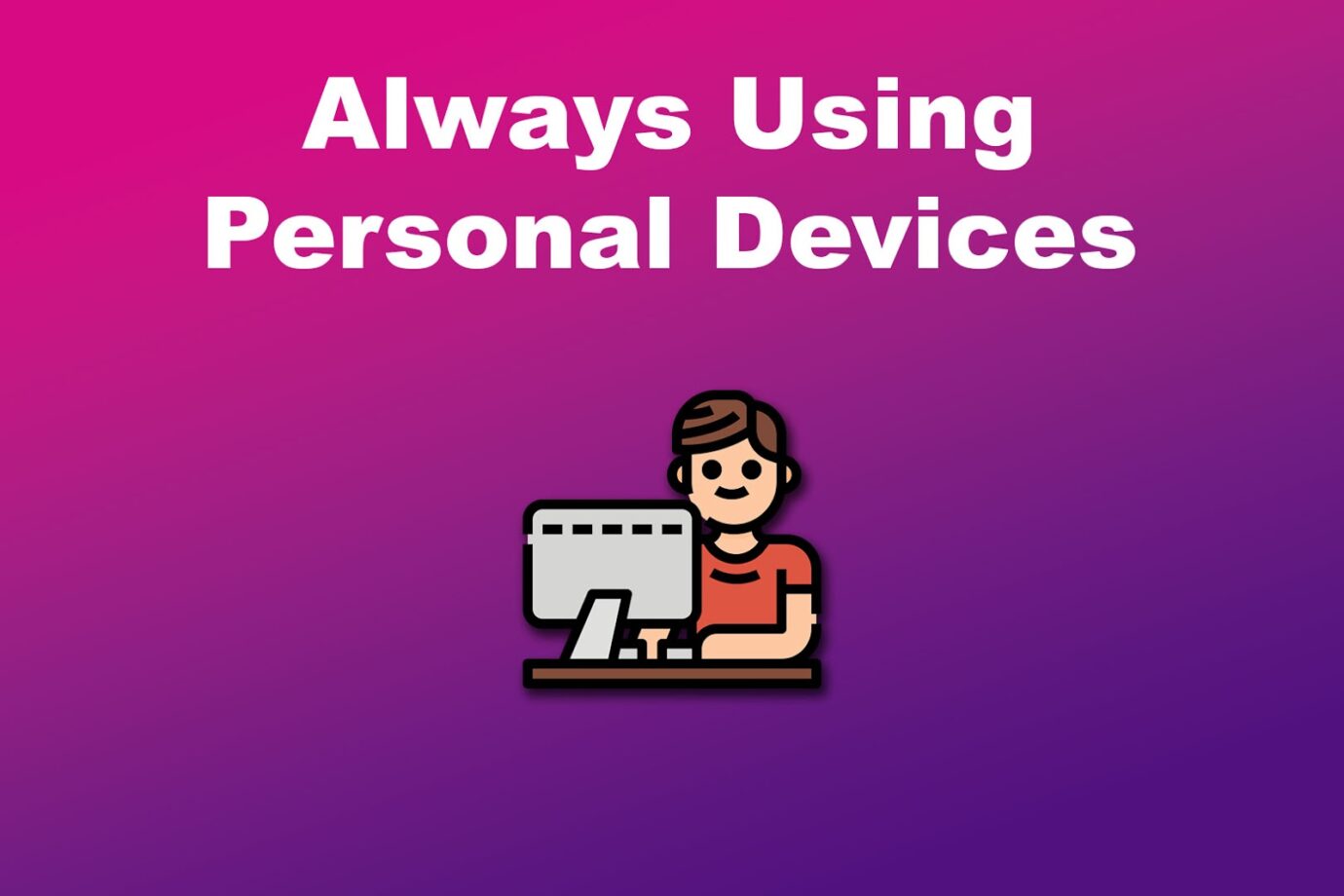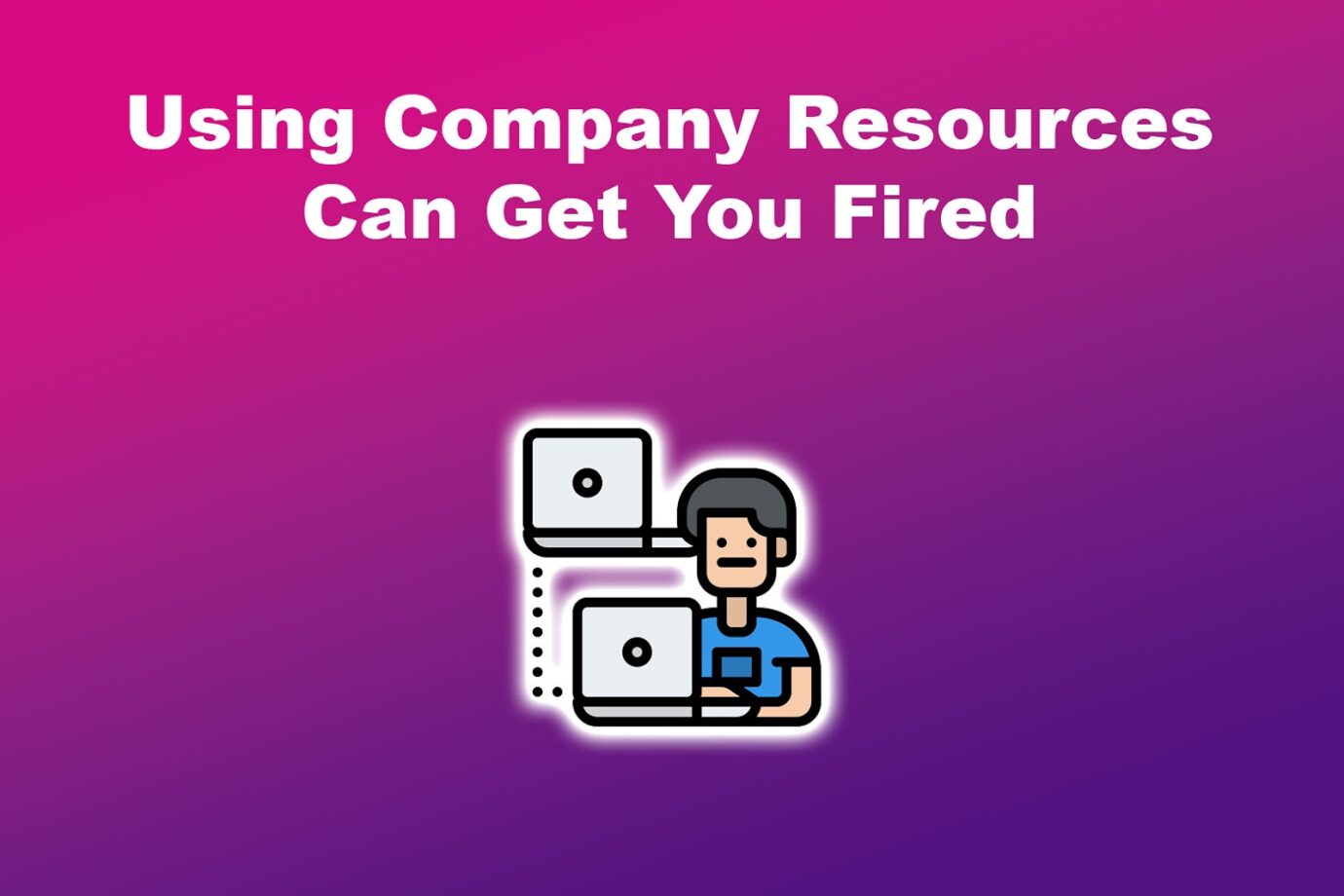Working two remote jobs means being employed by two companies simultaneously and performing tasks remotely, usually from home. It allows individuals to have multiple sources of income or varied work experiences while working remotely.
If you’re interested in working another remote job, you probably want to know if it’s illegal to work two remote jobs. If you are, we’re here to discuss whether or not it is illegal to work two remote jobs at the same time, as well as other details circling it.
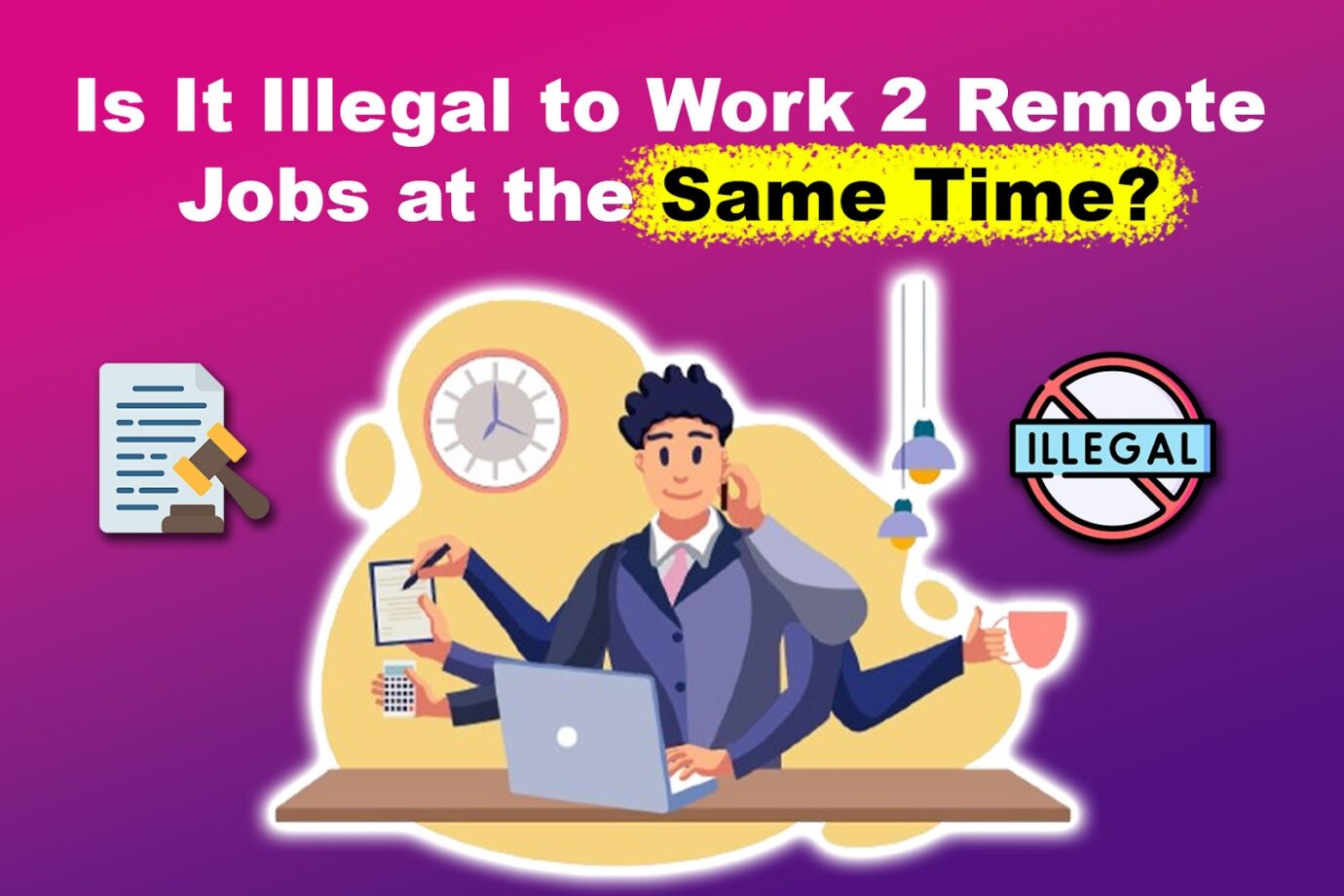
What Is the Term for Working Multiple Remote Jobs?
The term for working multiple remote jobs is “moonlighting” or “over-employed.” It’s when someone works multiple jobs, usually in the evenings, while still holding down their regular daytime job. The other friendly terms for these hardworking folks are “multi-jobber,” “side hustler,” “gig worker,” and “freelancer.”
Many remote workers enjoy remote work’s perks and secretly hold multiple jobs, dubbing themselves “over-employed.” The exact number of people engaging in this practice is uncertain due to difficulties tracking contract work and under-table employment by the Bureau of Labor Statistics.
Online forums show a rising trend of workers stating that juggling multiple jobs has become more manageable since the COVID-19 pandemic began.
Is It Illegal to Work 2 Remote Jobs at the Same Time?
No, it is not illegal to work two remote jobs simultaneously if they don’t overlap and are not both full-time. Having another full-time job without your employers’ knowledge could lead to issues like time theft. Also, working for a competitor could result in termination due to information protection rights.
Understanding the rules for having a second job can be tricky. Different states have different regulations, and factors like your location and company headquarters must be considered.
Most jobs in the US are “at will,” meaning your employer can let you go at any time. To legally work two jobs, keep your work hours separate and avoid conflicts of interest.
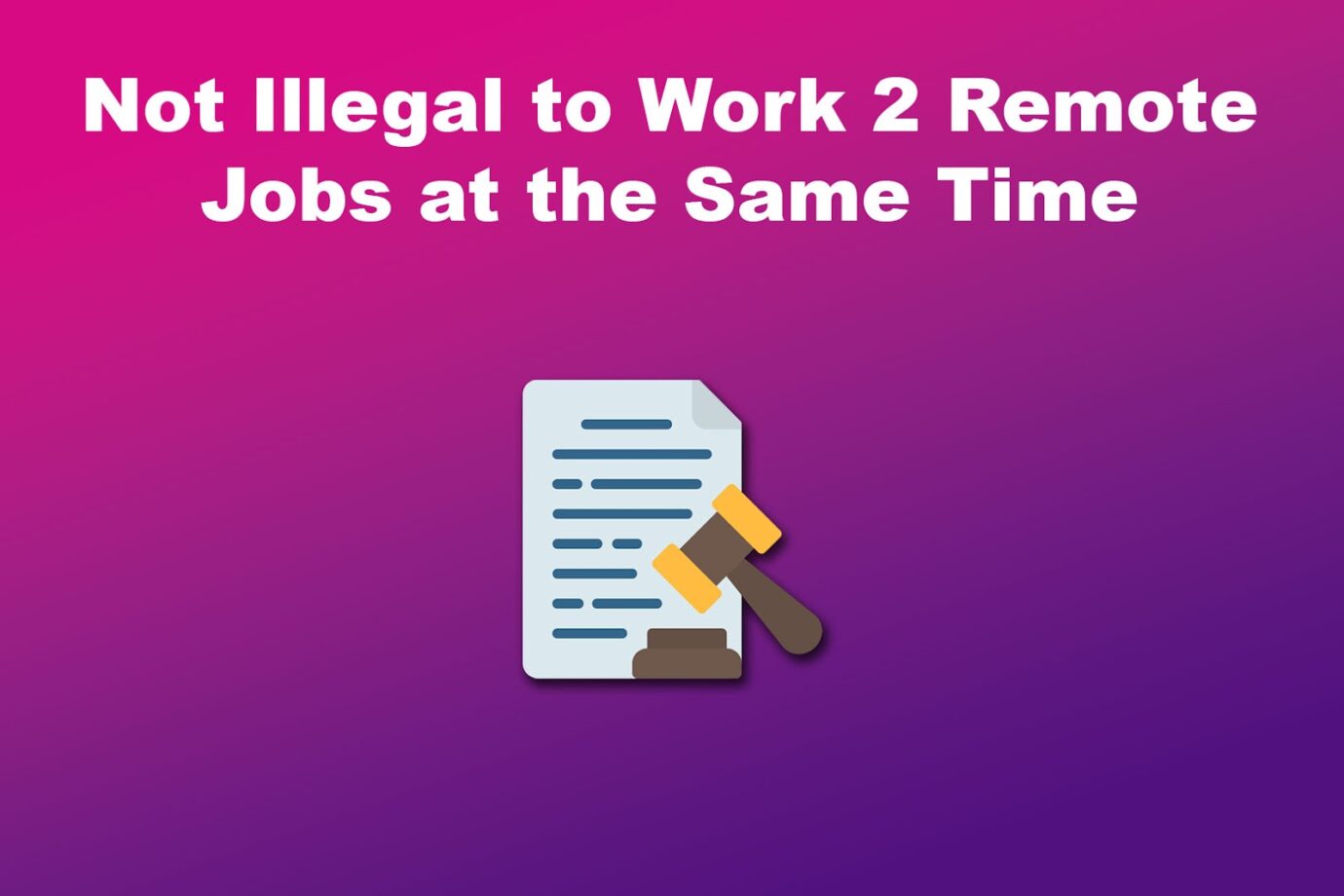
Check your employee handbook and state laws, and it’s best to get legal advice.
According to U.S. News, having two remote jobs might seem safe because it’s not against the law. Yet, working for two employers remotely could still get you fired from one or both jobs.
Employers can terminate at-will employees for various reasons, including dishonesty. Understanding each employer’s policies is crucial, as some may expect exclusive full-time work or require permission for outside employment.
In the past, such policies aimed to avoid conflicts of interest. Now, employers can assess if another position interferes with their own.
Employees with two full-time remote jobs may not disclose this due to employer policies.
Looking for a part time job? Here’s a list of easy-to-get remote jobs! Just make sure your managers know that you’re working to jobs and manage your time effectively to prevent your work’s quality from decreasing.
How to Tell if Someone Is Working 2 Jobs
In today’s job market, some employees might take on a couple of roles to boost their income or broaden their skills. While that’s cool, it can affect how they work and even raise some legal or ethical questions for their companies.
According to LinkedIn, here’s how to tell if someone is working two jobs:
-
Always Using Personal Devices.
If they’re always on their phone or personal laptop during work hours, they might be handling other job stuff.
- You Can’t Find Their LinkedIn Profile.
Not having a LinkedIn profile could mean they’re trying to keep their other jobs a secret. - They’re Not Always Available.
Your employee might often ask to switch shifts or seem unavailable during regular work hours. - Hesitant to Take on More.
If they don’t want to take on extra work, it could be because they’re already swamped. You might also notice their work quality slipping, missing deadlines, or making more mistakes. - They’re Not Always Participating.
They might not be into company events or team stuff like they used to be. They might manage multiple jobs if they are always asked to work from home. You should also watch for signs of stress or tiredness, like being snappy or calling in sick. - They Dodge Questions.
They might dodge questions about their workload or what they do outside of work.
Knowing these signs can help keep your workplace chill and fair. If you’re worried about an employee, talk to them openly and follow your company’s rules. It’s all about keeping things cool for everyone involved.
Related Post: Remote Work Legal Issues
What Happens if You Get Caught Working Two Jobs?
Nothing will happen if you get caught working two jobs remotely as long as you’re meeting expectations, your job doesn’t require you to be on call 24/7, and it’s not a conflict of interest.
While you won’t be dismissed for working two jobs without a conflict of interest, some factors can cause your employer to terminate you.
These are the potential reasons for termination if you work multiple jobs:
-
You’re Using Company Resources.
Your employer can terminate your employment if you use work tools or resources for your other job.
- You’re No Longer Productive.
Even if you’re still better than your coworkers, if your second job affects your performance, your employer might expect more from you or let you go.
Check out these 7 steps to measure the productivity of remote workers. - There’s a Conflict of interest.
If your second job competes with your current employer or uses similar skills, you might be asked to stop or risk getting fired.
If you’re an employer, here are some things you can do to track remote workers.
Is a Second Job a Conflict of Interest?
Whether a second job is a conflict of interest will depend on the field or industry it belongs to. If you can access secrets or special information from one job and use it at another job where it’s unavailable, that’s a conflict of interest. If not, then you have nothing to worry about.
For example, if you work for two companies that sell the same product and tell other customers to buy the cheaper one, this is a conflict of interest.
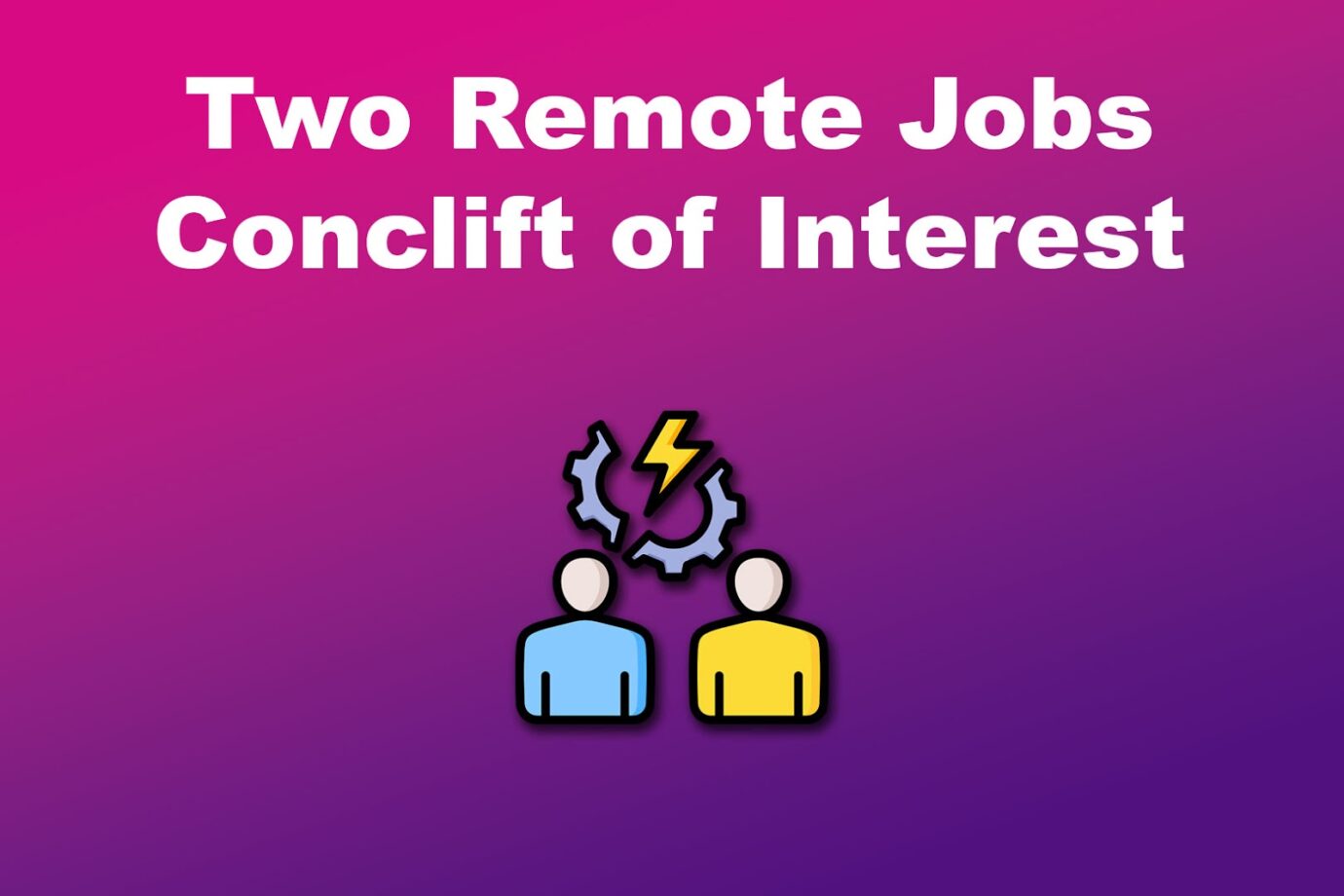
Learn more about what conflict of interest is in Indeed.
Employers should ensure that their second jobs don’t conflict with their primary employment, such as working for competitors or sharing confidential information, to avoid a conflict of interest.
Additionally, employees shouldn’t use company resources for outside work. Policies may outline how employees should assess potential conflicts of interest.
Issues related to second jobs are typically handled within existing disciplinary policies.
Here’s a list of the remote jobs that pay well if you want to land to a good second job. But make sure your employers know your work setup!
Can You Prevent an Employee From Getting a Second Job?
Yes, you can prevent an employee from getting a second job if it significantly interferes with their primary job duties. State labor laws may limit the type of work you can restrict and when you can apply these restrictions.
For example, employees can be barred from working on their remote second job during agreed-upon work hours. Problems may arise if the second job affects their performance at their primary job or competes directly with their employer’s interests. This restriction can apply during and even after employment.
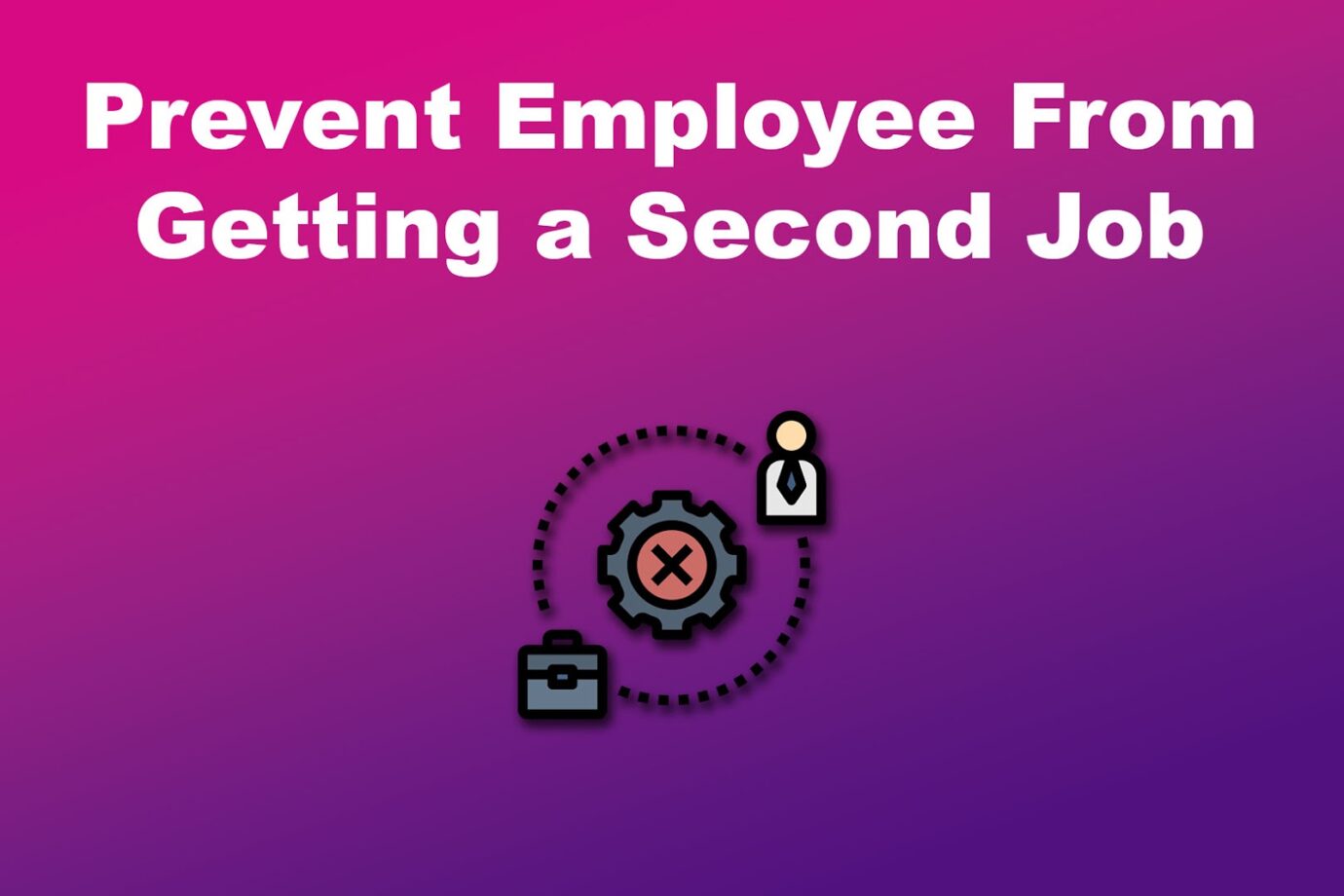
Engaging in these activities can lead to disciplinary action or termination, especially in unionized environments. Employers may need to provide an Employee Warning Letter and an opportunity for correction before termination unless the conduct is severe.
Many states allow employers to implement a blanket ban on moonlighting through company policy. Violating such policies can provide grounds for termination, regardless of job performance or business impact.
Consulting with an attorney can help determine the legality of implementing a moonlighting ban in your area.
One of the factors that causes employees to work two jobs is salary? But is remote job lower paying than an on-site one? Find out here.
Be Careful When Working Two Remote Jobs
While it’s not illegal to work two remote jobs at the same time as long as the working hours don’t overlap, you should still be careful. Working two remote jobs at the same time might burn you out, and your employer might notice you are becoming less productive. You wouldn’t want to be at a disadvantage health-wise and career-wise.
Given the economic climate today, being over-employed is no longer odd. Many people are doing it to earn a few more bucks. Remember to read your employee contract before you take on more work from other companies.
